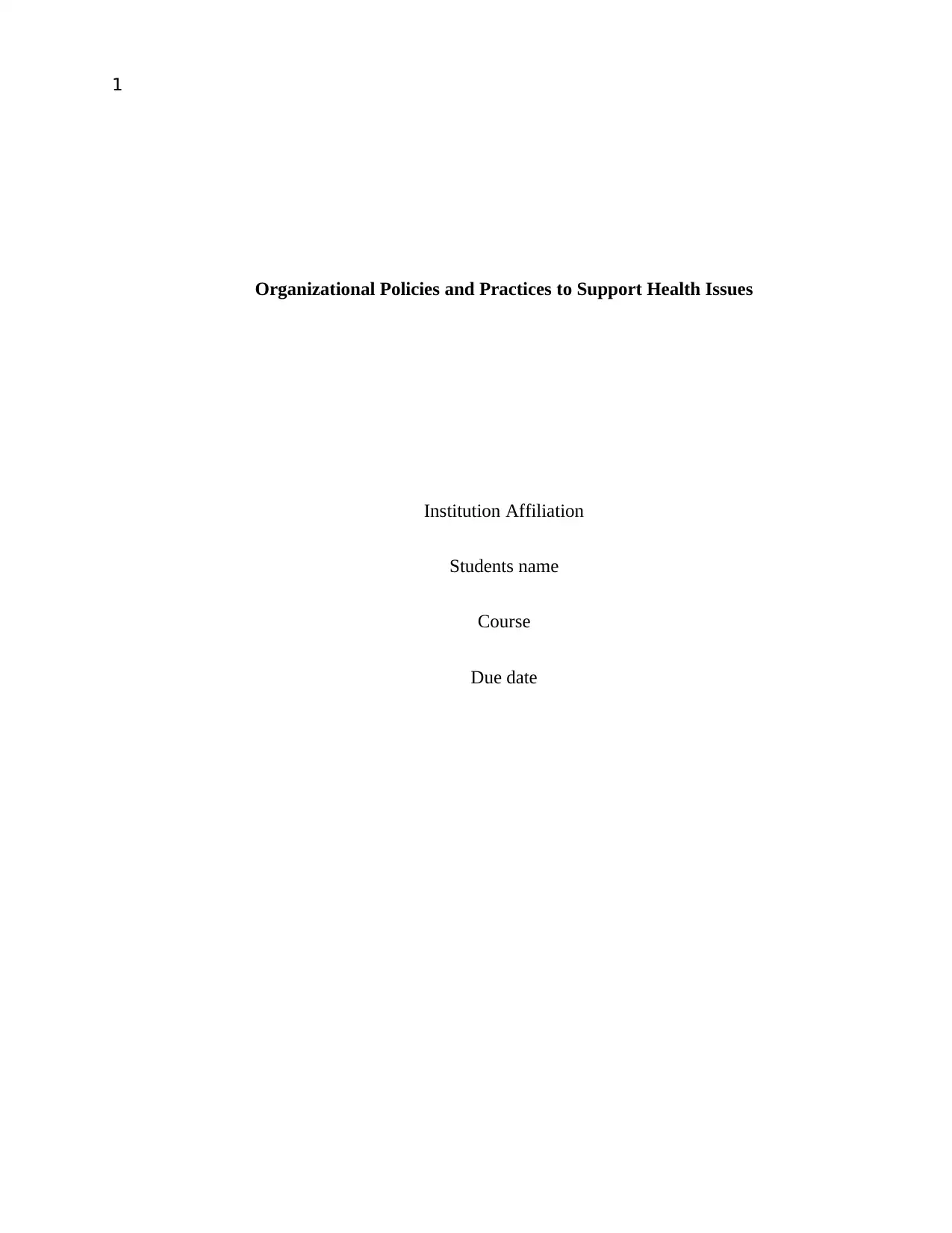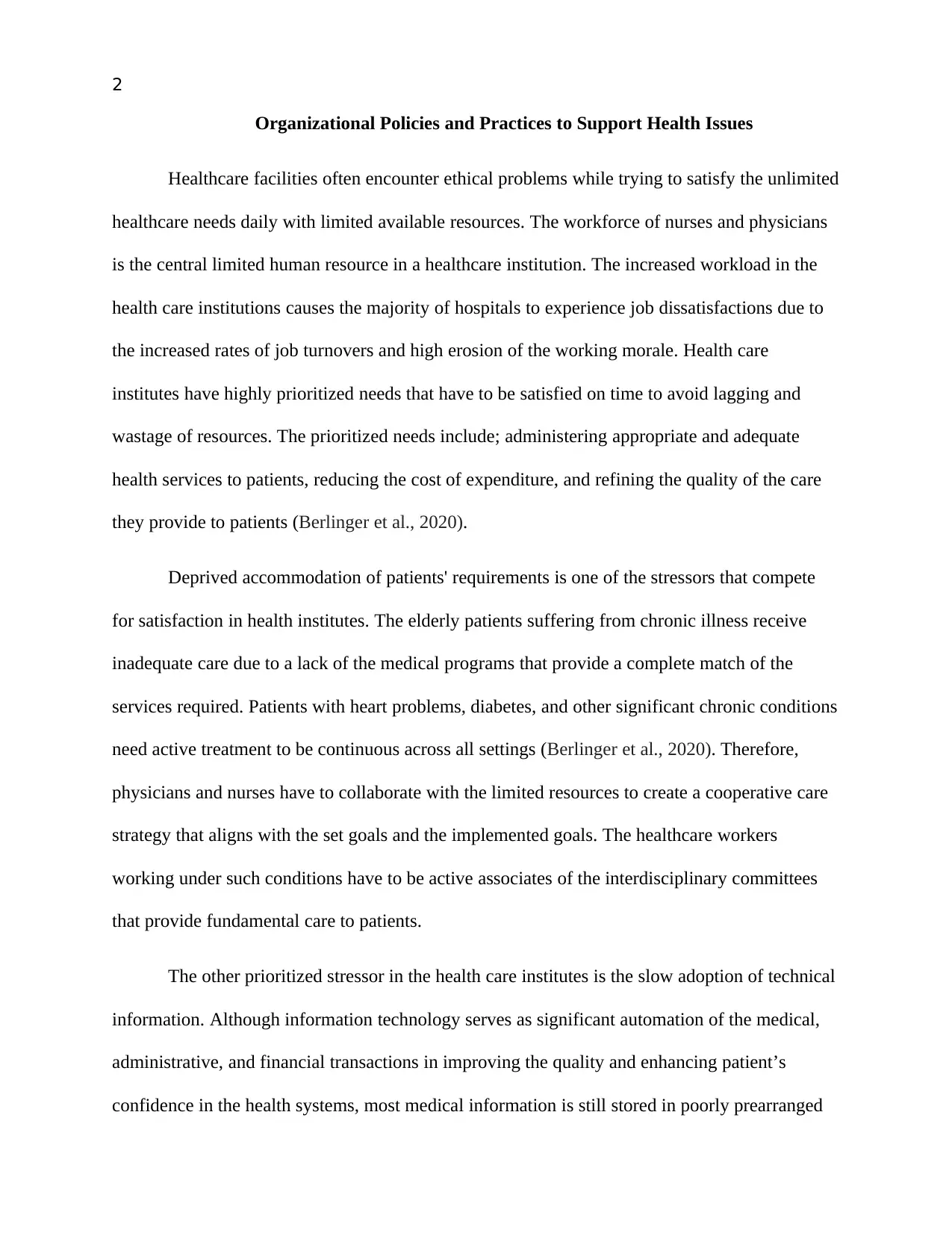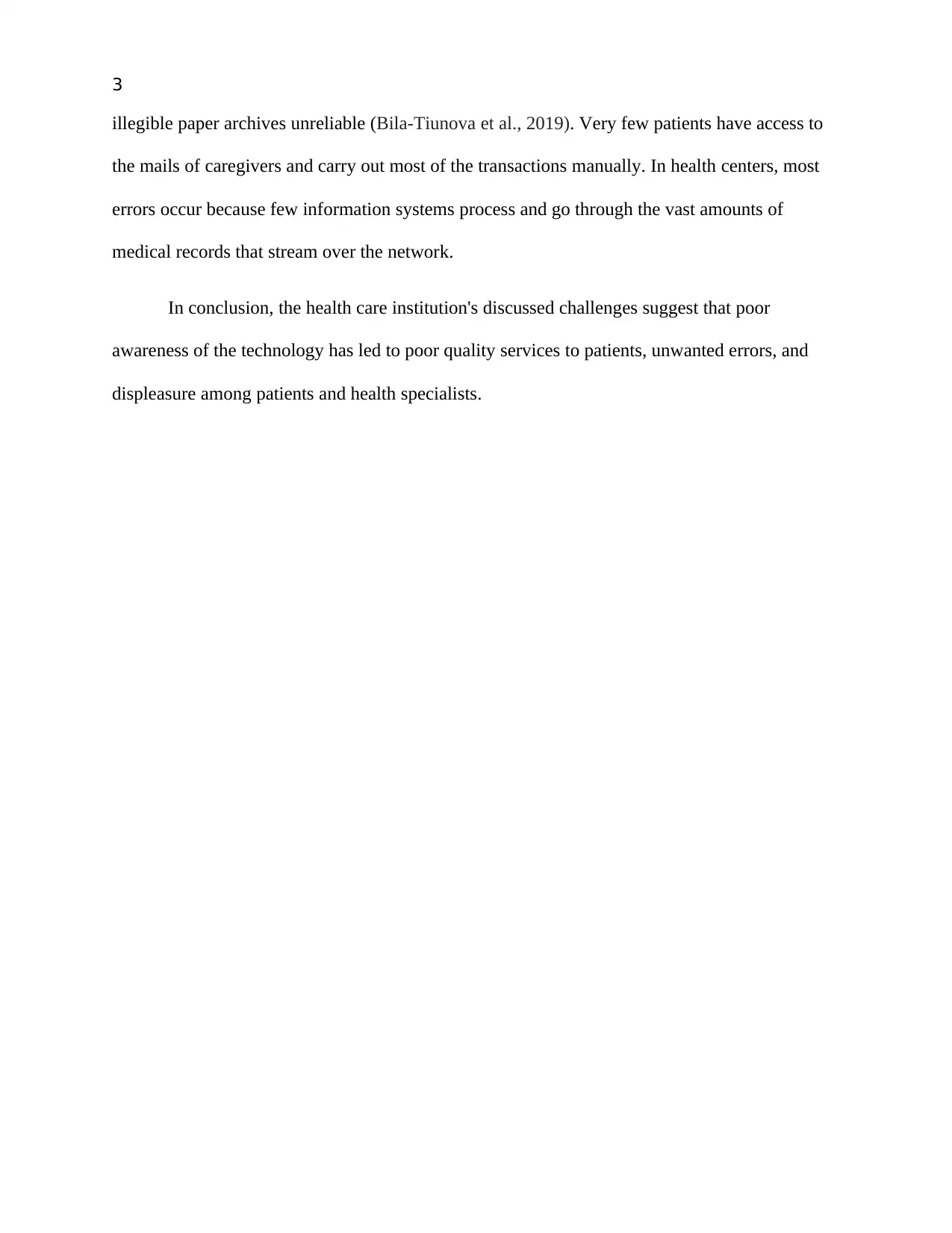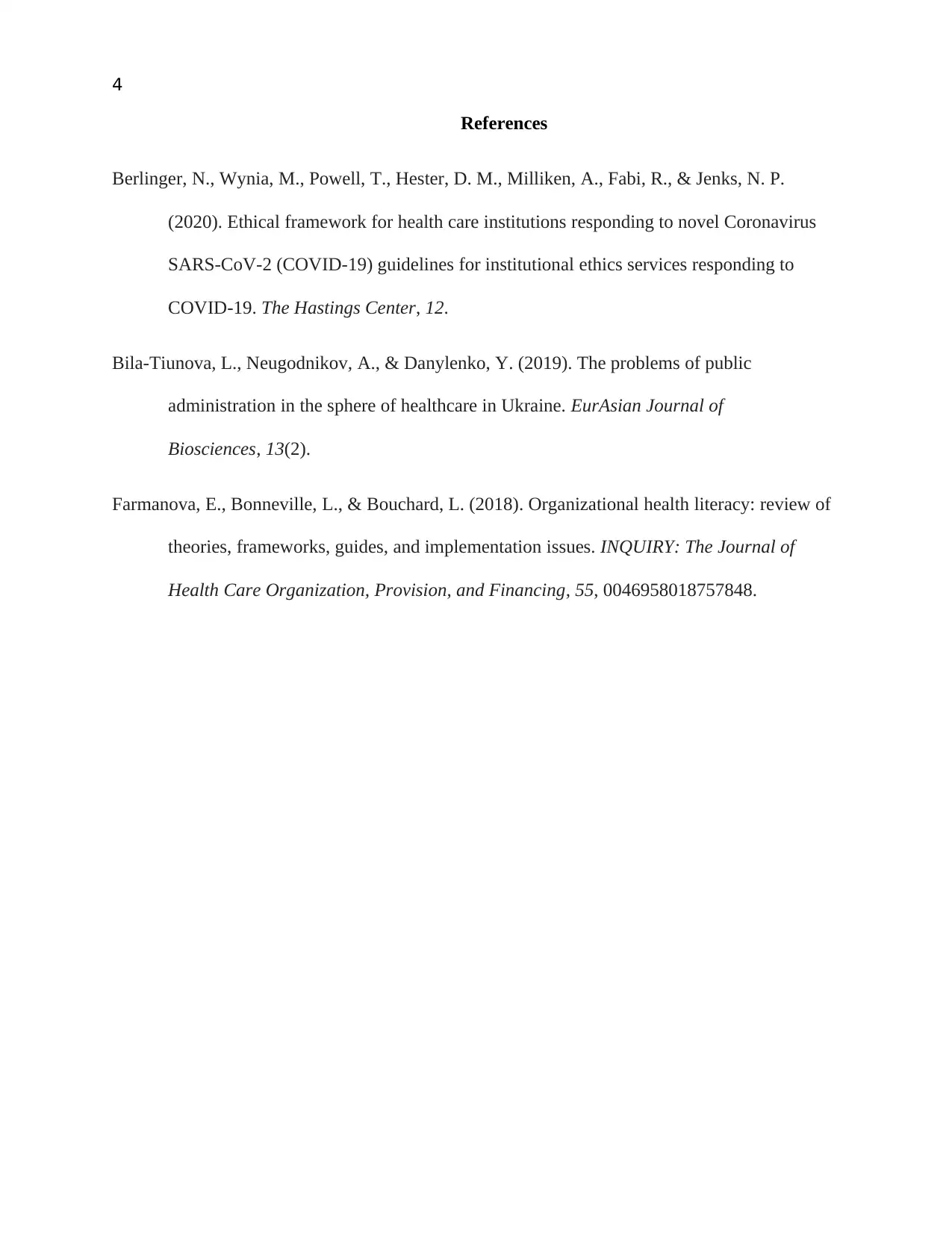Analysis of Organizational Policies and Practices in Healthcare
VerifiedAdded on 2021/03/18
|5
|589
|85
Report
AI Summary
This report analyzes the organizational policies and practices within healthcare institutions, focusing on the challenges faced in providing quality patient care. It highlights the ethical dilemmas arising from limited resources, the impact of high workloads on healthcare professionals, and the need to balance patient needs with resource constraints. The report discusses issues such as inadequate care for chronic illness, the importance of interdisciplinary collaboration, and the slow adoption of technology and information systems. It emphasizes how these factors contribute to errors, inefficiencies, and dissatisfaction among patients and healthcare staff. The report concludes that improved awareness of technology and better implementation of policies are essential to enhance the quality of services and improve patient outcomes.
1 out of 5











![[object Object]](/_next/static/media/star-bottom.7253800d.svg)